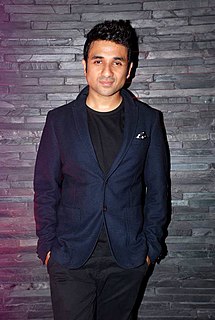A Quote by Mark Billingham
Whether you do stand-up comedy or write a story, you have a duty to deliver. As a comedian, you walk out on stage, and you have a minute to hook them, or they'll start booing. As a writer, it's very similar. A reader doesn't have time to say, 'I'll give him 50 pages, as it's not very good yet, but I hope it'll get better.'
Related Quotes
On a more technical level, a story takes a lot of words. And to generate words and phrases and images and so on, that will compel the reader to continue reading - that stand a chance of really grabbing a reader - the writer has to work out of a place of, let's say, familiarity and affection. The matrix of the story has to be made out of stuff the writer really knows about and likes. The writer can't be stretching and (purely) inventing all the time. Well, I can't, anyway.
As soon as I start to write I'm very aware, I'm trying to be aware that a reader just might well pick up this poem, a stranger. So when I'm writing - and I think that this is important for all writers - I'm trying to be a writer and a reader back and forth. I write two lines or three lines. I will immediately stop and turn into a reader instead of a writer, and I'll read those lines as if I had never seen them before and as if I had never written them.
If you're 50 years old or younger, give every book about 50 pages before you decide to commit yourself to reading it, or give it up. If you're over 50, which is when time gets shorter, subtract your age from 100 - the result is the number of pages you should read before deciding whether or not to quit. If you're 100 or over you get to judge the book by its cover, despite the dangers in doing so.
When I was fifteen I wrote seven hundred pages of an incredibly bad novel - it's a very funny book I still like a lot. Then, when I was nineteen I wrote a couple hundred pages of another novel, which wasn't very good either. I was still determined to be a writer. And since I was a writer, and here I was twenty-nine years old and I wasn't a very good poet and I wasn't a very good novelist, I thought I would try writing a play, which seems to have worked out a little better.
Conclusions are based in time. We live in time. So any definition of success is bound up with time. With other things you can say, "Can I yo-yo? Can I juggle?" Usually you have a pretty small window in which to get your answer. Stand-up is different. You can't do stand-up for one night and say, "Am I a funny stand-up comedian?" In two months or two years you'll start to realize it.
When you see a comedian on stage, the best comedians make it feel like a conversation. But it's not. We have very little interest in what an audience has to say during a performance. Being a stand-up comedian, you're an egomaniac to some degree. Everyone wants to hear what you have to say, apparently. That's not how real relationships work.
Your only guidepost is your own instinct and judicious editing. In my stand-up act I learned that in the first 10 minutes I could say anything and it would get a laugh. Then I'd better deliver. In the movie it's the same thing. You get a lot of laughs when people first sit down and then the story better kick in. Many years in front of an audience, I would hope, give me a sense of what works.
When people say, 'How did you start in comedy,' I say my family was kidnapped by ninjas when I was very young, and to get them released I had to do a killer five-minute set. And even after I did that, you know, I started doing comedy under tough circumstances, I still kept at it because I enjoyed it.
How does it happen that a writer who's not even very good - and I can say that, I've read four or five of his books - gets to be in charge of the world's destiny? Or of the entire universe's?" If he's not very good, why didn't you stop at one?" Mrs. Tassenbaum smiled. "Touché. He is readable, I'll give him that - tells a good story.
It is easier for the reader to judge, by a thousand times, than for the writer to invent. The writer must summon his Idea out of nowhere, and his characters out of nothing, and catch words as they fly, and nail them to the page. The reader has something to go by and somewhere to start from, given to him freely and with great generosity by the writer. And still the reader feels free to find fault.







































